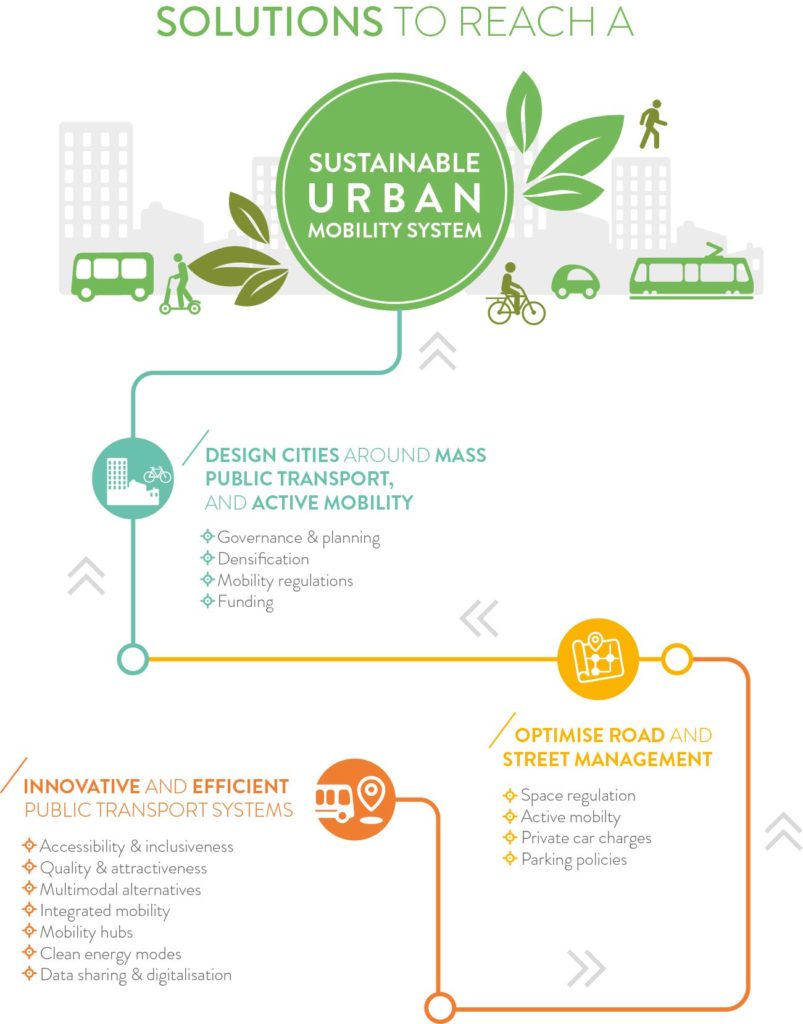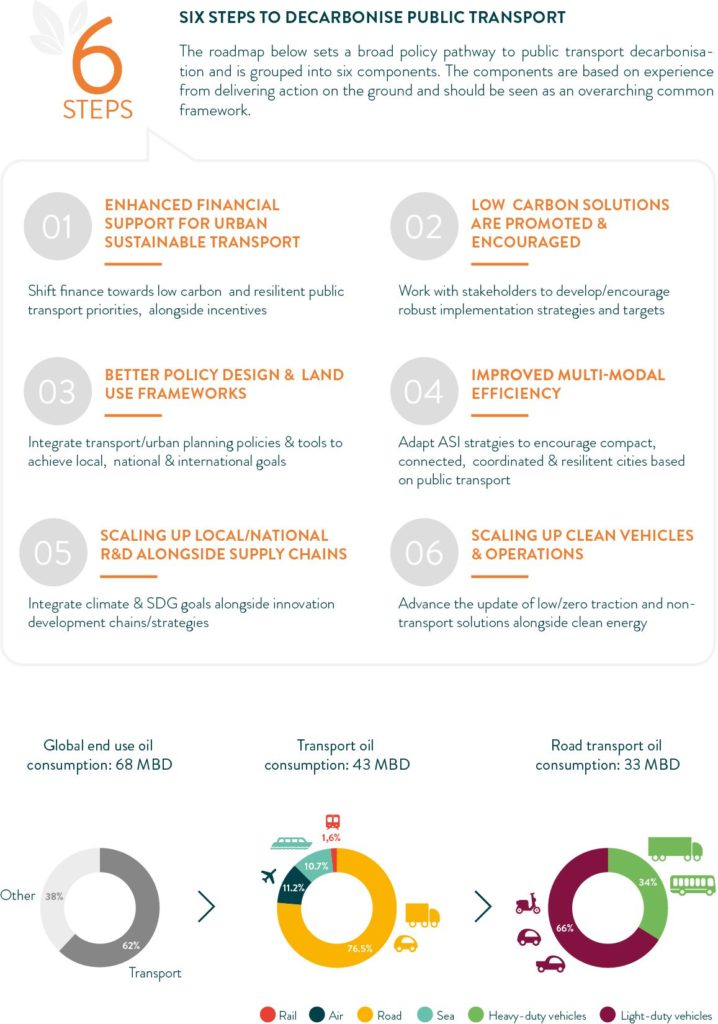Solutions for Better Urban Mobility
How to address the massive mobility challenges that abound in cities? UITP answers.
Goal: to have the most liveable cities possible for all people who choose to call them home. This should always be the aim of those who advocate for better, and more sustainable urban mobility. At the International Association of Public Transport (UITP), we work with our global membership in more than 100 countries to advance the agenda to best achieve that vision.
For all of us with a vested interest in advancing urban mobility, we know that more needs to be done when it comes to delivering on this aim. The number of people choosing to live in cities will increase in the coming years; our cities will need to keep adapting to best serve their needs and answer mobility demands. By sharing ideas, research and insight, we can keep moving the urban mobility agenda forward. After all, collaboration is the key to finding the best solutions to the problems we face collectively.
Whether it be through publications, projects, events, Committees or Working Groups, UITP and our global membership know that we can create a lasting impact on the conversation around public transport and active mobility, if we work together.
A perfect example of that is through our publication: the Better Urban Mobility Playbook.
This unique publication, created with the insight of UITP experts and members, is a guide designed to support the sector by identifying challenges, specific solutions with concrete actions, and successful practices from our community. Public transport is known for its strength of community, and by giving this publication to the sector, it can be used for cross-party discussions, for urban transport strategies, and even as a benchmark to grade a city’s performance.
A tool for cities to produce results
The 2021 Better Urban Mobility Playbook is an update from the Better Mobility Report, which UITP first published over 20 years ago. A much needed and long-awaited update, the Playbook is a tool for governments and local decision-makers to build better urban mobility and achieve inclusive, resilient, and sustainable cities.
At almost 80 pages, the Playbook is set out in sections, detailing in a synthetic way, the background, the challenges, the solutions and cases, and the conclusions to where we currently stand. The Playbook exists as an advocacy tool for our cities, and the plan is to keep it as a living document, updating it on a more regular basis with case studies from our members.
The Playbook is a tool for governments and local decision-makers to build better urban mobility and achieve inclusive, resilient, and sustainable cities.
There’s much work to be done, and as our cities keep growing at an unprecedented rate together with demand for mobility, the socio-economic divide is wider than ever with the repercussions of climate change being undeniable. With these challenges, we are actively looking for solutions. And the solutions are there in sight…
Today, our cities account for 70% of carbon emissions the majority of which come from the transport and energy sector alone, and road vehicles account for around 75% of transport emissions. Approximately 90% of urban inhabitants breathe air containing pollutants exceeding the World Health Organisation’s recommendations. 30% of EU population suffer from noise pollution which impacts mental health. About 15% of the population, or one billion people, suffers from a disability and by 2030, more than 46% of people over the age of 60 year will have disabilities.
Our cities are the epicentre for innovation, economic growth, and social well-being. Successful cities are those with high interactions, where people can have ease of access to basic services, jobs, schools, leisure activities and businesses. Moving towards sustainable cities is a huge collective effort that can only be achieved with strong political leadership and courage.
Building more efficient urban mobility systems
National and urban policy-makers must now face the consequences of more than 70 years of urban development around unsustainable, private, and individual mobility, including urban sprawl, traffic congestion, air and noise pollution, road accidents, social segregation and much more. Although more awareness exists to the challenges we face, problems are only going to get worse unless we tackle the climate crisis with a serious sense of urgency. Public transport is a known solution to climate change if we harness its capabilities.
Over the last two decades, many positive changes in our cities have occurred. Investments in public transport systems have been impressive and undeniable. New metro lines have opened across the globe, bus rapid transit systems have developed worldwide, and pedestrians and cyclists are taking back the streets with more access to dedicated space, without cars, than ever before. Plans have been put in place in many cities to implement the right mechanisms to support and manage mobility systems, and many cities are now also integrating land-use and mobility planning.
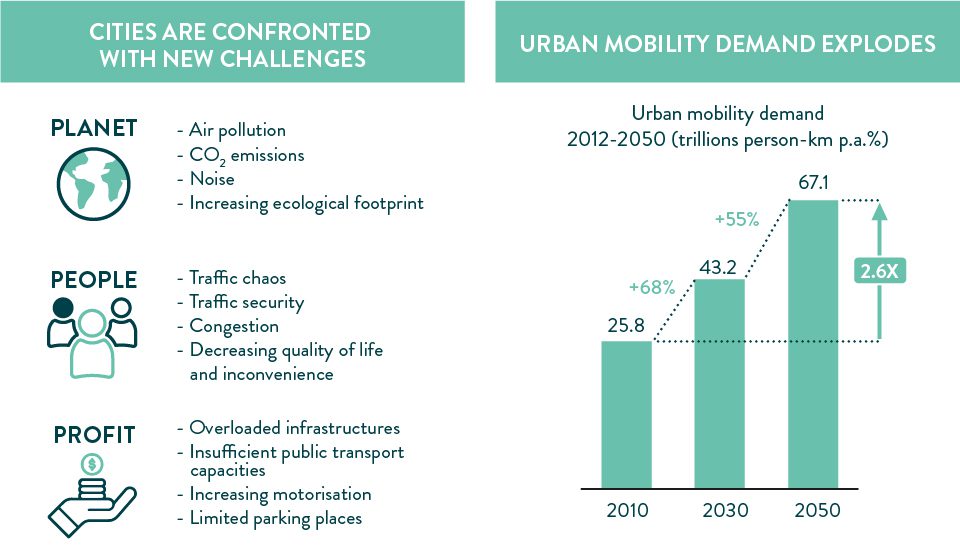
But changes are not happening fast enough to reach international climate agreements. UITP believes that our new Playbook will be a helpful tool to support cities in reaching the Sustainable Development Goals with clearer guidance on better urban mobility.
Cities must keep playing a central role in transforming society and reaching international climate targets. With the transport sector being one of the biggest consumers on oil, representing 65% of global oil consumption, public transport, active mobility, and complementary services are the easiest and quickest solutions to reducing global emissions. But this is not a case of “build it and they will come”. Yes, we need investment, but we also need coordinated land-use and mobility planning, public-private cooperation, and data sharing strategies to make sure transport is integrated into everyday life, keeping passengers at the very heart.
Lasting change for society
The public transport sector continues to face impressive redefinition, with digitalization, automation, electrification, and energy changes bringing the sector into a more modern future. Solutions that were once deemed a distant futuristic vision have now become a well-established reality. There is greater emphasis towards healthy living, prioritising walking and cycling, the natural neighbours of public transport, and improving public space for the needs of all residents.
With much at stake concerning the climate crisis, national and city governments need all the support they can get when it comes to building cohesive, strong governance and policies related to sustainable, inclusive cities.
Our cities need to focus on improving the alternatives to the car and giving more space to walking, cycling and public transport, while disincentivising all aspects of car use. This approach is win-win, as less cars in urban areas means more space for the public realm, business, and more sustainable mobility.
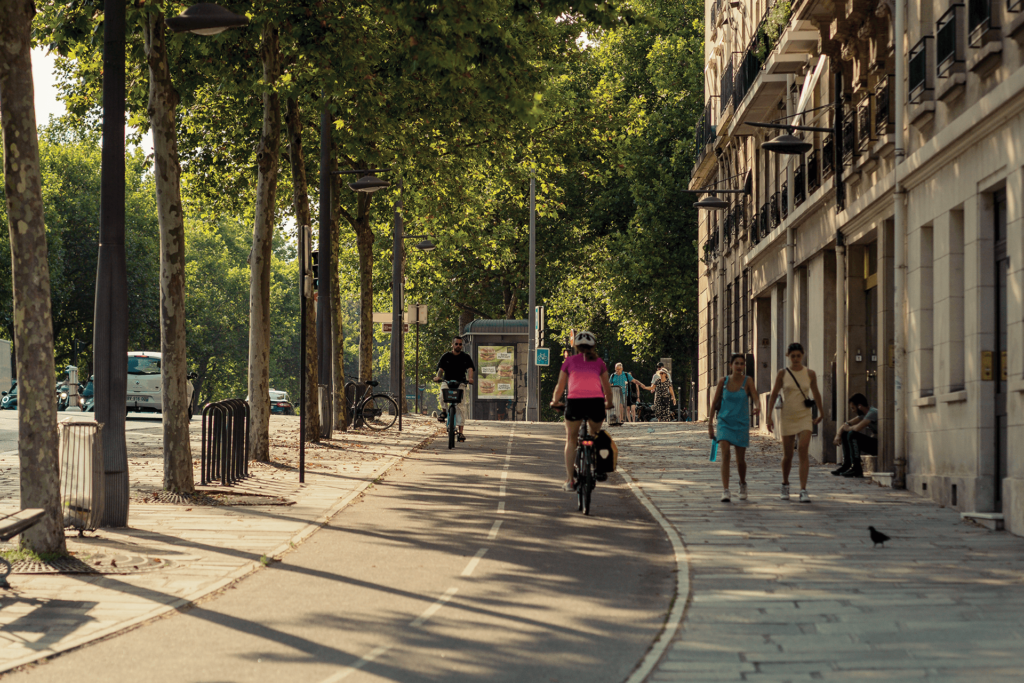
We know that COVID-19 has hit our cities hard, and public transport is not unique in being a sector impacted by the global pandemic. Behavioural changes in terms of mobility, digitalization and e-commerce, and home working, do bring new challenges to cities which might need to reinvent themselves. The increase of car use in many cities is a warning sign that must be taken seriously so as not to recreate the mistakes of the past.
In serious times, solutions are sought after. The Better Urban Mobility Playbook is a gift to the public transport sector – one if used wisely, can be a tool to provide solutions to the ongoing problems our cities face. Challenges can be met, and outcomes can be achieved.
At UITP, we work hard each and every day to make the vision of sustainable urban mobility for all a reality. We will continue to support our members and wider transport community in ensuring public transport remains the backbone of our cities.
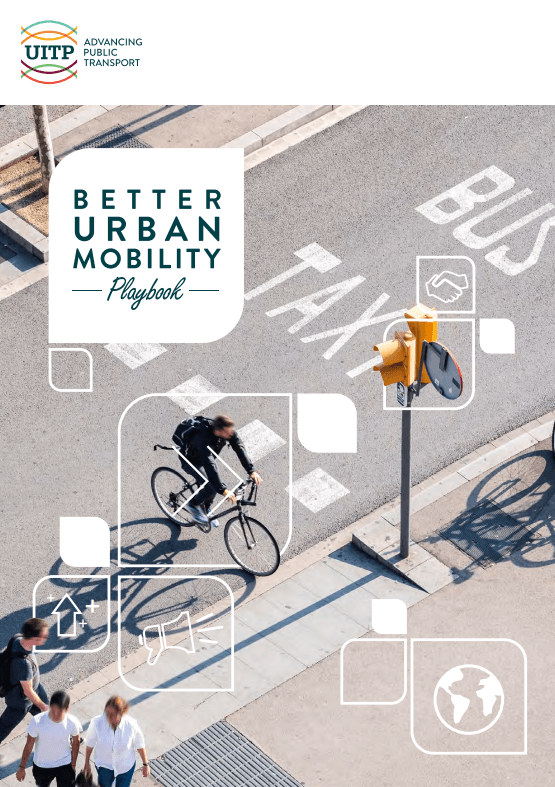
To download the Better Urban Mobility Playbook, visit:
uitp.org/publications/better-urban-mobility-playbook/
